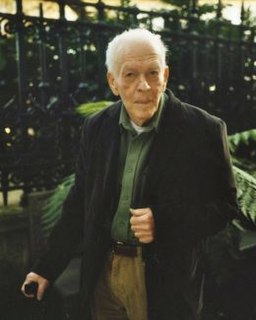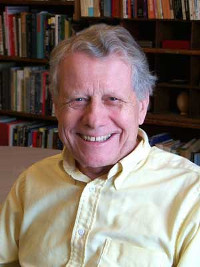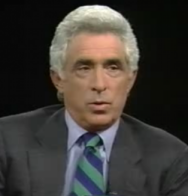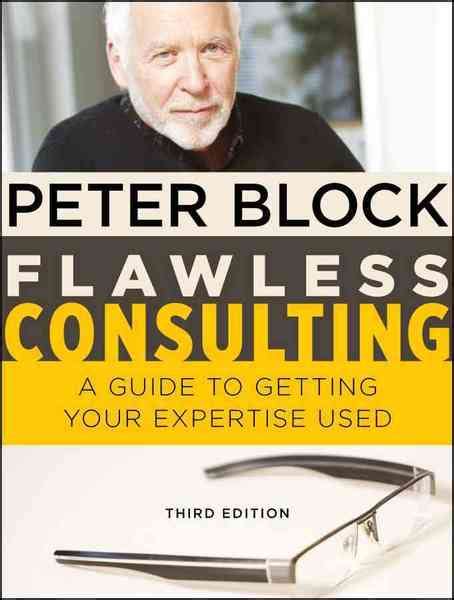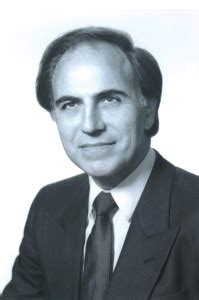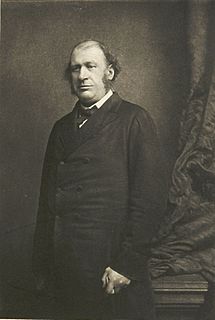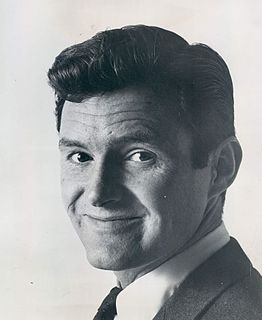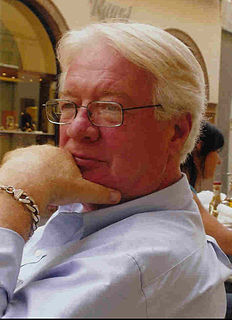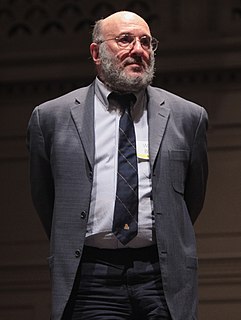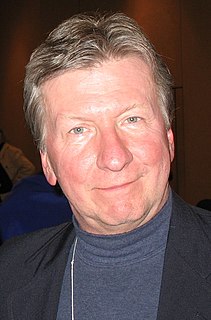Top 234 Coercion Quotes & Sayings - Page 4
Explore popular Coercion quotes.
Last updated on April 15, 2025.
To put it as simply as possible: I am not a Muslim.[...] I do not accept the charge of apostacy, because I have never in my adult life affirmed any belief, and what one has not affirmed one can not be said to have apostasized from. The Islam I know states clearly that 'there can be no coercion in matters of religion'. The many Muslims I respect would be horrified by the idea that they belong to their faith purely by virtue of birth, and that a person who freely chose not to be a Muslim could therefore be put to death.
The Rights Revolutions too have given us ideals that educated people today take for granted but that are virtually unprecedented in human history, such as that people of all races and creeds have equal rights, that women should be free from all forms of coercion, that children should never, ever be spanked, that students should be protected from bullying, and that there’s nothing wrong with being gay. I don’t find it at all implausible that these are gifts, in part, of a refined and widening application of reason.
As everyone knows, there is no intelligence in coercion or forcing another into action or realization. And if the name of the galactic game is superior, intelligent harmonization, it must be played so that the local intelligence is taught or shown how it works in such a manner that it comes to its own conclusions. In other words, the galactic code of honor is to manifest and demonstrate harmony by whatever means possible.
Indeed, some secularists are so worried about Christianity, they think Christians are about as dangerous as Muslim terrorists. They get really worried when we don't invest our lives in this-worldly concerns. They look on us as unpredictable free agents. When we reject their relativism and make absolutist spiritual claims, they look at us as nervously as they would a terrorist with a suicide bomb strapped to his back. Of course, Christians are not into coercion in any form. But it is very hard to persuade secularists of that.
Markets are born free, yet no sooner are they born than some would-be emperor is forging chains. Paradoxically, it sometimes happens that the only way to preserve freedom is through judicious controls on the exercise of private power. If we believe in liberty, it must be freedom from both private and public coercion.
We need to reduce military budgets; raise living standards; engender respect for learning; support science, scholarship, invention, and industry; promote free inquiry; reduce domestic coercion; involve the workers more in managerial decisions; and promote genuine respect and understanding derived from an acknowledgement of our common humanity and our common jeopardy.
In many respects, the United States is the freest country in the world. I don't just mean in terms of limits on state coercion, though that's true too, but also in terms of individual relations. The United States comes closer to classlessness in terms of interpersonal relations than virtually any society.
It [the free market] is an organizational way of doing things, featuring openness, which enables millions of people to cooperate and compete without demanding a preliminary clearance of pedigree, nationality, color, race, religion, or wealth. It demands only that each person abide by voluntary principles, that is, by fair play. The free market means willing exchange; it is impersonal justice in the economic sphere and excludes coercion, plunder, theft, protectionism, and other anti-free market ways by which goods and services change hands.
There’s one thing that’s been 'learned' maybe from Tunisia and Egypt that I think is a mistake. And that is that the existing ruler has to resign. He doesn’t have to resign. You take all the supports out from under him; he falls. No matter what he wants to do. This is the distinction in the analyses between nonviolent coercion in which he has to resign, but he’s forced into it, and disintegration when the regime simply falls apart. There’s nobody left with enough power to resign.
Republics demanded virtue. Monarchies could rely on coercion and "dazzling splendor" to suppress self-interest or factions; republics relied on the goodness of the people to put aside private interest for public good. The imperatives of virtue attached all sorts of desiderata to the republican citizen: simplicity, frugality, sobriety, simple manners, Christian benevolence, duty to the polity. Republics called on other virtues--spiritedness, courage--to protect the polity from external threats. Tyrants kept standing armies; republics relied on free yeomen, defending their own land.
From that point on, the extraordinary system of spies and informers which has played an important part in the political work of the French state into our own time took shape. (Sartine, who became lieutenant general de police in 1759, is supposed to have said to Louis XV, "Sire, when three people are chatting in the street one of them is surely my man.") Eighteenth-century police manuals like those of Colquhoun in England or Lemaire in France are no less than general treatises on the government's full repertoire of domestic regulation, coercion, and surveillance.
We have entered an Orwellian era in which entitlement replaces responsibility, coercion is described as compassion, compulsory redistribution is called sharing, race quotas substitute for diversity, and suicide is prescribed as 'death with dignity.' Political discourse has become completely corrupted. The reason is that if you tell people directly that you want to raise their taxes, transfer their wealth, count them by skin color, or let doctors kill them, most will object. Statists know this and therefore are obliged to obfuscate.
Love has to spring spontaneously from within And it is no way amenable to any form of inner or outer force. Love and coercion can never go together; But though love cannot be forced on anyone, It can be awakened in him through love itself. Love is essentially self communicative; Those who do not have it catch it from those who have it. True love is unconquerable and irresistible, And it goes on gathering power and spreading itself, Until eventually it transforms everyone whom it touches.
Trump has got to define what he seeks to achieve with Russia, and then use diplomacy and sometimes coercion to achieve those ends. Right now, aside from this fight with ISIS, which I would underscore, you know, the Obama administration has been trying to fight ISIS with Russia for several years now.
You have to look at what the United Nations Declaration of Rights of Indigenous people says which is free and prior informed consent. Now, if you say 'we're going to build a pipeline, what does it take for us as the colonial power of Canada to make you agree?' That's not free, prior and informed consent, that's coercion.
Invitation is not only a step in bringing people together, it is also a fundamental way of being in a community. It manifests the willingness to live in a collaborative way. This means that a future can be created without having to force or sell it or barter for it. When we believe that barter or subtle coercion is necessary, we are operating out of a context of scarcity and self-interest, the core currencies of the economist.
The market, if it can be kept honest and competitive, does provide very strong incentives for work effort and productive contributions. In their absence, society would thrash about for alternative incentives-some unreliable, like altruism; some perilous like collective loyalty; some intolerable, like coercion or oppression.
There are two visions of America. One precedes our founding fathers and finds its roots in the harshness of our Puritan past. It is very suspicious of freedom, uncomfortable with diversity hostile to science, unfriendly to reason, contemptuous of personal autonomy. It sees America as a religious nation. It views patriotism as allegiance to God. It secretly adores coercion and conformity. Despite our constitution, despite the legacy of the Enlightenment, it appeals to millions of Americans and threatens our freedom.
We are bound to maintain public liberty, and, by the example of our own systems, to convince the world that order and law, religion and morality, the rights of conscience, the rights of persons, and the rights of property, may all be preserved and secured, in the most perfect manner, by a government entirely and purely elective. If we fail in this, our disaster will be significant, and will furnish an argument, stronger than has yet been found, in support of those opinions which maintain that government can rest safely on nothing but power and coercion.
All socialism involves slavery.... That which fundamentally distinguishes the slave is that he labors under coercion to satisfy another's desires. The relation admits of many gradations. Oppressive taxation is a form of slavery of the individual to the community as a whole. The essential question is -- How much is he compelled to labor for other benefit than his own, and how much can he labor for his own benefit?
Where the preamble declares, that coercion is a departure from the plan of the holy author of our religion, an amendment was proposed by inserting "Jesus Christ," so that it would read "A departure from the plan of Jesus Christ, the holy author of our religion;" the insertion was rejected by the great majority, in proof that they meant to comprehend, within the mantle of its protection, the Jew and the Gentile, the Christian and Mohammedan, the Hindoo and Infidel of every denomination.
To try to regulate the internal affairs of a family, the relations of love or friendship, or many other things of the same sort, by law or by the coercion of public opinion, is like trying to pull an eyelash out of a man's eye with a pair of tongs. They may put out the eye, but they will never get hold of the eyelash
The more people get advised to eat vegetables, the less it seems they wish to eat them. And it is quite a natural response. So I've said that the main way that we get to like food is through being exposed to them, but there's a second condition. We have to be exposed to them without feeling any sense of coercion.
How far does one combine resistance to over-control with social justice, i.e. tolerable living for people in general? We are too selfish to be trusted, if left free, to give away enough to make people comfortable enough to give them a chance. Yet if all this is ordered for us, as to some extent it has to be, it so soon leads to tyranny. It is a very difficult problem. If only human beings had more pity, unselfishness, and justice and didn't need coercion to treat each other decently.
The error seems not sufficiently eradicated, that the operations of the mind, as well as the acts of the body, are subject to the coercion of the laws. But our rulers can have authority over such natural rights only as we have submitted to them. The rights of conscience we never submitted, we could not submit. We are answerable for them to our God. The legitimate powers of government extend to such acts only as are injurious to others.
I see this as the central issue of our time: how to find a substitute for war in human ingenuity, imagination, courage, sacrifice, patience... War is not inevitable, however persistent it is, however long a history it has in human affairs. It does not come out of some instinctive human need. It is manufactured by political leaders, who then must make a tremendous effort--by enticement, by propaganda, by coercion--to mobilize a normally reluctant population to go to war.
Every human being shall see in each and all of his fellow-men a hidden divinity... that every human being is made in the likeness of the Godhead. When that time comes there will be no need for any religious coercion; for then every meeting between one man and another will of itself be in the nature of a religious rite, a sacrament.
Notwithstanding what some regard as the institutionalization of compassion, the transfer society quashes genuine virtue. Redistribution of income by means of government coercion is a form of theft. Its supporters attempt to disguise its essential character by claiming that democratic procedures give it legitimacy, but this justification is specious. Theft is theft, whether it be carried out by one thief or by a hundred million thieves acting in concert. And it is impossible to found a good society on the institutionalization of theft.
Until I read Neill's book, 'Summerhill,' I thought there were only two ways to bring up children, either with authoritarian discipline or with permissiveness. Either way, hopefully, applied with love. Now I know there is a third way: teaching a child self*regulation, not by coercion or by abandoning discipline, but by freedom with responsibility.
The gold standard did not collapse. Governments abolished it in order to pave the way for inflation. The whole grim apparatus of oppression and coercion, policemen, customs guards, penal courts, prisons, in some countries even executioners, had to be put into action in order to destroy the gold standard.
If welfare and equality are to be primary aims of law, some people must necessarily possess a greater power of coercion in order to force redistribution of material goods. Political power alone should be equal among human beings; yet striving for other kinds of equality absolutely requires political inequality.
In Romans 7, St. Paul says, "The law is spiritual." What does that mean? If the law were physical, then it could be satisfied by works, but since it is spiritual, no one can satisfy it unless everything he does springs from the depths of the heart. But no one can give such a heart except the Spirit of God, who makes the person be like the law, so that he actually conceives a heartfelt longing for the law and henceforward does everything, not through fear or coercion, but from a free heart.
Consider the sexual harassment which continually occurs between a secretary and a boss . . . while objectionable to many women, [it] is not a coercive action. It is rather part of a package deal in which the secretary agrees to all aspects of the job when she agrees to accept the job, and especially when she agrees to keep the job. The office is, after all, private property. The secretary does not have to remain if the 'coercion' is objectionable.
The Constitution. . . illustrates the complexity of the American system: that it serves the interests of a wealthy elite, but also does enough for small property owners, for middle-income mechanics and farmers, to build a broad base of support. The slightly prosperous people who make up this base of support are buffers against the blacks, the Indians, the very poor whites. They enable the elite to keep control with a minimum of coercion, a maximum of law--all made palatable by the fanfare of patriotism and unity.
The details of the CCP's anti-Uighur campaign are heartbreaking, but they reflect the Marxist-Leninist disdain for individual human beings. Whenever Chinese people dare defy the party by asserting their individual humanity, they stop being useful to the state and become a problem to solve the only way the CCP knows how: suppression and coercion.
It is a very grave mistake to think that the enjoyment of seeing and searching can be promoted by means of coercion and a sense of duty. To the contrary, I believe it would be possible to rob even a healthy beast of prey of its voraciousness, if it were possible, with the aid of a whip, to force the beast to devour continuously, even when not hungry.
Two hundred years ago the forces of freedom challenged this idea. The children of the new enlightenment rose up to defy the tyranny of arrogant clergy and the censorship of pious bureaucrats. They boldly proclaimed that the state must be free from religious coercion and that religion must be free from state control. All individuals have the right to pursue the dictates of their own conscience. All citizens even have the right not to be religious at all.
To live and work successfully with others requires more than faithfulness to one's concrete aims. It requires an intellectual commitment to a type of order in which, even on issues which to one are fundamental, others are allowed to pursue different ends. It is for this reason that to the liberal neither moral nor religious ideals are proper objects of coercion, while both conservatives and socialists recognize no such limits.
We do not assert that the capitalist mode of economic calculation guarantees the absolutely best solution of the allocation of factors of production. Such absolutely perfect solutions of any problem are out of reach of mortal men. What the operation of a market not sabotaged by the interference of compulsion and coercion can bring about is merely the best solution accessible to the human mind under the given state of technological knowledge and the intellectual abilities of the age's shrewdest men.
[Libertarians] don't denounce what the state does, they just object to who's doing it. This is why the people most victimized by the state display the least interest in libertarianism. Those on the receiving end of coercion don't quibble over their coercers' credentials. If you can't pay or don't want to, you don't much care if your deprivation is called larceny or taxation or restitution or rent. If you like to control your own time, you distinguish employment from enslavement only in degree and duration.
People who denounce the free market and voluntary exchange, and are for control and coercion, believe they have more intelligence and superior wisdom to the masses. What's more, they believe they've been ordained to forcibly impose that wisdom on the rest of us. Of course, they have what they consider good reasons for doing so, but every tyrant that has ever existed has had what he believed were good reasons for restricting the liberty of others.
In very clear and available language, this book details how to recognize the inner critic and how to deal effectively with it. Byron Brown's presentation is useful for any individual who wishes to be free from the inner suffering and coercion of this ancient foe of our humanity, but it is specifically directed to those interested and engaged in the inner journey toward realization and enlightenment.
Desktop publishing was a big innovation that meant small groups or even poor societies could do their own publication without the capital investment in a major printing press. That's a big difference. Same is true of more advanced technologies - it can offer plenty of liberatory possibilities - can - but whether it does or not or whether it serves for coercion depends on socioeconomic decisions.
It is our American habit if we find the foundations of our educational structure unsatisfactory to add another story or wing. We find it easier to add a new study or course or kind of school than to recognize existing conditions so as to meet the need. strangled the holy curious of inquiry. It is a very grave mistake to think that the enjoyment of seeing and searching can be promoted by means of coercion and a sense of duty.
What has been the effect of coercion? To make one half the world fools, and the other half hypocrites. To support roguery and error all over the earth.... [Instead] reason and persuasion are the only practicable instruments. To make way for these, free enquiry must be indulged; and how can we wish others to indulge it while we refuse it ourselves?
Political freedom means the absence of coercion of a man by his fellow men. The fundamental threat to freedom is power to coerce, be it in the hands of a monarch, a dictator, an oligarchy, or a momentary majority. The preservation of freedom requires the elimination of such concentration of power to the fullest possible extent and the dispersal and distribution of whatever power cannot be eliminated — a system of checks and balances.
It is, in fact, nothing short of a miracle that the modern methods of instruction have not yet entirely strangled the holy curiosity of inquiry; for this delicate little plant, aside from stimulation, stands mainly in need of freedom; without this it goes to wrack and ruin without fail. It is a grave mistake to think that the enjoyment of seeing and searching can be promoted by means of coercion and a sense of duty.
Fear, coercion, punishment, are the masculine remedies for moral weakness, but statistics show their failure for centuries. Why not change the system and try the education of the moral and intellectual faculties, cheerful surroundings, inspiring influences? Everything in our present system tends to lower the physical vitality, the self-respect, the moral tone, and to harden instead of reforming the criminal.
Religion that is imposed upon its recipients turns out to engender either indifference or resentment. Most American religious leaders have recognized that persuasion is far more powerful than coercion when it comes to promoting one's religious views. . . . Not surprisingly, then, large numbers of religious leaders have supported the Supreme Court in its prayer decisions.
There must be no bloodshed, no violence unless it is defensive, no coercion! We must do it our way and our way alone! To do otherwise is to betray centuries of hardship and struggle.Above all else Kyfho. Forget Kyfho in your pursuit of victory over the enemy, and you will become the enemy...worse than the enemy because he doesn't know he is capable of anything better.
Let us put aside resolutely that great fright, tenderly and without malice, daring to be wrong in something important rather than right in some meticulous banality, fearing no evil while the mind is free to search, imagine, and conclude, inviting our countrymen to try other instruments than coercion and suppression in the effort to meet destiny with triumph, genially suspecting that no creed yet calendared in the annals of politics mirrors the doomful possibilities of infinity.








